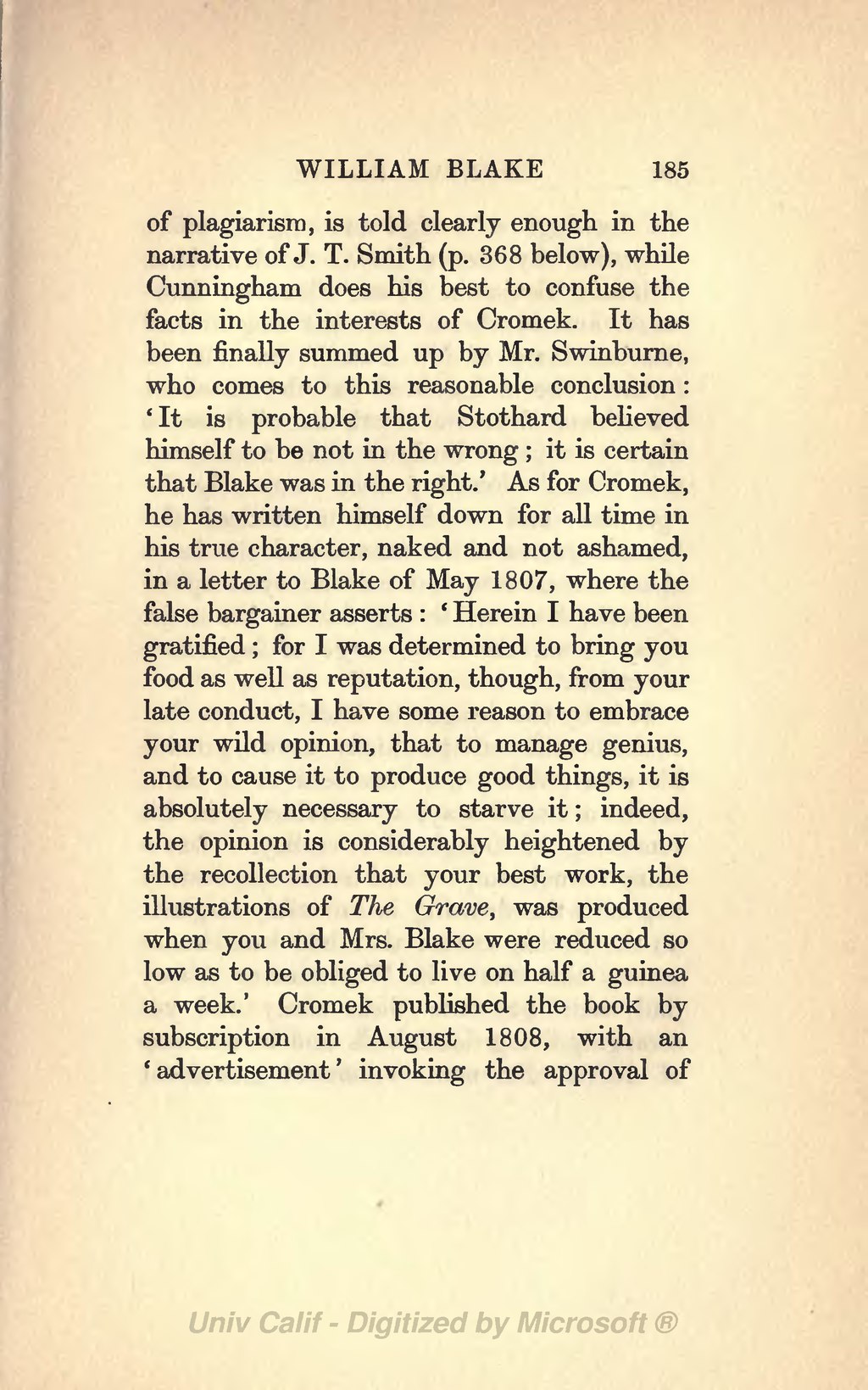of plagiarism, is told clearly enough in the narrative of J. T. Smith (p. 368 below), while Cunningham does his best to confuse the facts in the interests of Cromek. It has been finally summed up by Mr. Swinburne, who comes to this reasonable conclusion: 'It is probable that Stothard believed himself to be not in the wrong; it is certain that Blake was in the right.' As for Cromek, he has written himself down for all time in his true character, naked and not ashamed, in a letter to Blake of May 1807, where the false bargainer asserts: 'Herein I have been gratified; for I was determined to bring you food as well as reputation, though, from your late conduct, I have some reason to embrace your wild opinion, that to manage genius, and to cause it to produce good things, it is absolutely necessary to starve it; indeed, the opinion is considerably heightened by the recollection that your best work, the illustrations of The Grave, was produced when you and Mrs. Blake were reduced so low as to be obliged to live on half a guinea a week.' Cromek published the book by subscription in August 1808, with an 'advertisement' invoking the approval of
Page:William Blake (Symons).djvu/209
WILLIAM BLAKE
185
